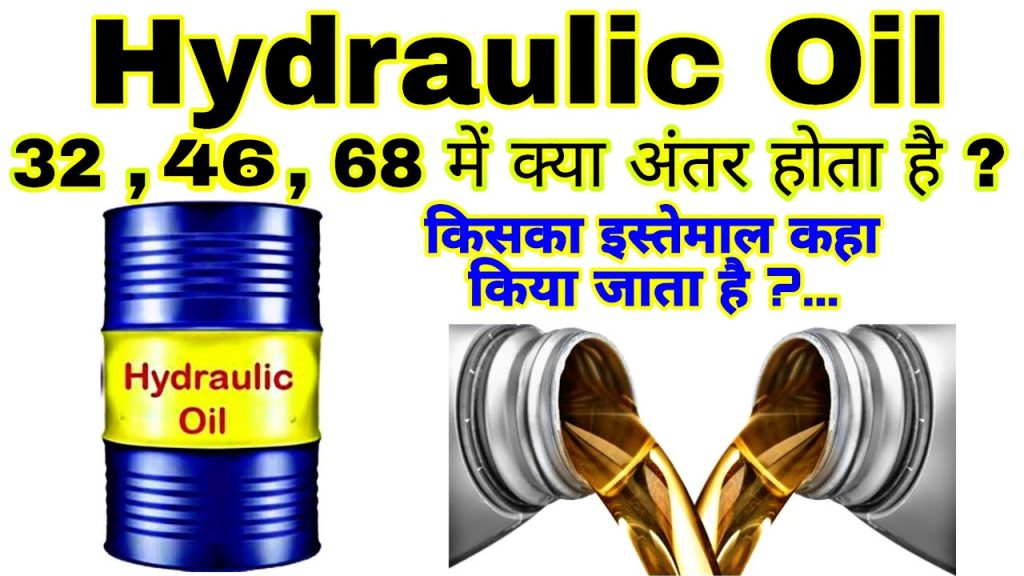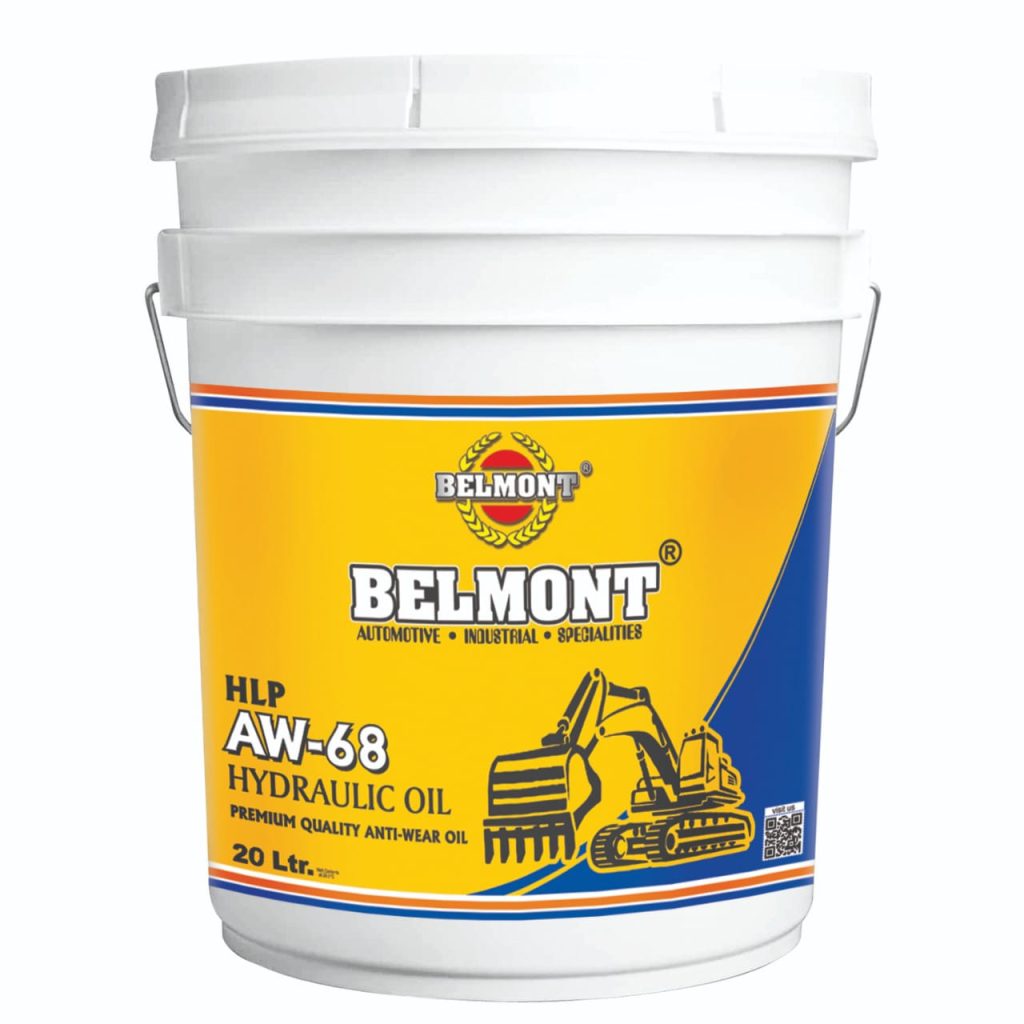Meta Title:
“Hydraulic Oil 46 vs 68: Which Viscosity Grade is Right for Your Machinery? | Belmont Lubricants“
Meta Description:
“Understand the critical differences between ISO 46 and ISO 68 hydraulic oils. Learn viscosity comparison, temperature suitability, and which grade works best for JCBs, tractors, and industrial systems.”

Introduction :
Hydraulic oil is essential for ensuring optimal performance and extending the lifespan of industrial and construction machinery. Among the most commonly used hydraulic oils are Grade 46 and Grade 68. Understanding the key differences between these two grades can help equipment owners and procurement managers make the right choice, especially in industrial B2B applications. In this article, we’ll explore the technical differences, applications, and selection criteria for Hydraulic Oil 46 vs 68, specifically in the context of the Indian market.
What Do Hydraulic Oil Grades Mean?
Hydraulic oil grades, such as 46 and 68, refer to the oil’s viscosity based on the ISO VG (International Standards Organization Viscosity Grade) system. The number represents the oil’s viscosity at 40°C. In simple terms:
- Hydraulic Oil 46 has a medium viscosity.
- Hydraulic Oil 68 has a higher viscosity and is thicker compared to 46.
1. Key Differences Between ISO 46 and ISO 68 Hydraulic Oil
| Parameter | ISO 46 Hydraulic Oil | ISO 68 Hydraulic Oil |
|---|---|---|
| Viscosity | Thinner (46 cSt at 40°C) | Thicker (68 cSt at 40°C) |
| Temperature Range | 0°C to 60°C | 10°C to 80°C |
| Applications | High-speed pumps, cold climates | Heavy machinery, hot climates |
| Energy Efficiency | Better (less fluid friction) | Slightly lower |
| Protection | Good for moderate loads | Better for high-pressure systems |
2. When to Use ISO 46 Hydraulic Oil?
✔ Best for:
- High-speed hydraulic pumps
- Cold weather operations (below 15°C)
- Mobile equipment like compact tractors
- Systems requiring energy efficiency
✔ Common Applications:
- CNC machines
- Light-duty hydraulic presses
- Agricultural sprayers
Related Article: Which Hydraulic Oil is Best for JCB Machines?
3. When to Use ISO 68 Hydraulic Oil?
✔ Best for:
- Heavy construction equipment (excavators, bulldozers)
- High-temperature environments (above 30°C)
- High-pressure hydraulic systems
- Industrial gearboxes
✔ Common Applications:
- Mining equipment
- Large hydraulic presses
- Marine deck machinery
Related Article: Hydraulic Oil Manufacturers in Delhi, India
4. Viscosity Comparison Chart
| Temperature | ISO 46 Performance | ISO 68 Performance |
|---|---|---|
| -10°C | Fair flow | Poor flow |
| 20°C | Excellent flow | Good flow |
| 40°C | Optimal | Optimal |
| 70°C | Thin (may leak) | Still protective |
5. Can You Mix ISO 46 and 68 Hydraulic Oils?
⚠ Not Recommended:
- Mixing alters viscosity and reduces performance
- May cause pump cavitation or overheating
- Only mix in emergencies, then replace fully
6. Frequently Asked Questions
Q1: Which grade is better for Indian summer conditions?
A: ISO 68 performs better in hot climates (above 30°C) as it maintains thickness.
Q2: Does using thicker oil (68) increase protection?
A: Only in high-temperature/high-pressure systems. In cold weather, it can damage pumps.
Q3: Can I use ISO 68 instead of 46 in my tractor?
A: Only if operating in consistently hot conditions (>35°C). Check manufacturer guidelines.
Q4: Which grade gives better fuel efficiency?
A: ISO 46 reduces fluid friction, improving efficiency by 3-5% in compatible systems.
Q5: How to identify oil grade in my hydraulic system?
A: Check:
- Equipment manual
- Oil barrel labels (ISO VG 46/68)
- Existing oil’s viscosity test results
7. Expert Recommendation
- For North India (extreme summers): ISO 68
- For South India (moderate climate): ISO 46
- For Himalayan regions: ISO 32 (thinner for cold starts)
Pro Tip: Always consult your equipment manual before switching grades.
8. Where to Buy Quality Hydraulic Oil?

Belmont Lubricants offers premium-grade ISO 46 and 68 hydraulic oils with:
- Anti-wear additives
- Oxidation stability
- Water separation properties
Explore options: Belmont Hydraulic Oil Range
Further Reading:
Conclusion
Choosing between Hydraulic Oil 46 and 68 depends on your machine type, operating temperature, and workload. While Grade 46 is ideal for light to medium-duty systems in moderate climates, Grade 68 works best for heavy-duty equipment and higher temperature conditions. Using the right oil ensures smoother operation, reduced wear, and longer equipment life.
For reliable performance and protection, always select premium-quality hydraulic oils like those offered by Belmont Lubricants. The right choice today will save you costly repairs tomorrow.
